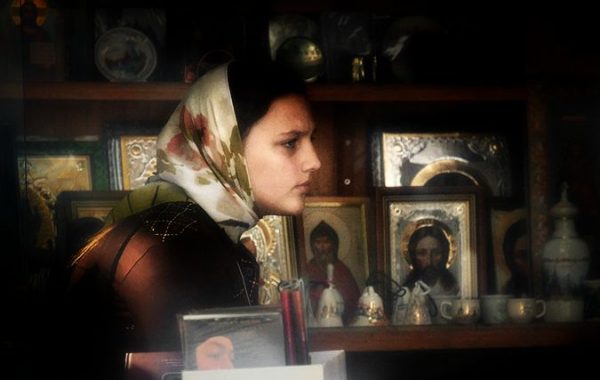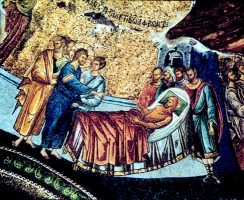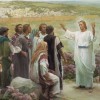At that time, Jesus entered into a ship, and passed over, and came into His own city. And, behold, they brought to Him a man sick of the palsy, lying on a bed: and Jesus seeing their faith said unto the sick of the palsy, “Son, be of good cheer; thy sins be forgiven thee.” And, behold, certain of the scribes said within themselves, “This Man blasphemeth.” And Jesus knowing their thoughts said, “Wherefore think ye evil in your hearts? For whether is easier, to say, ‘Thy sins be forgiven thee’; or to say, ‘Arise, and walk’? But that ye may know that the Son of Man hath power on earth to forgive sins,” (then saith He to the sick of the palsy,) “Arise, take up thy bed, and go into thine house.” And he arose, and departed to his house. But when the multitudes saw it, they marveled, and glorified God, which had given such power unto men(Matthew 9:1-8).
Jesus performed many miracles during His earthly life that are recorded in Gospels. We read how He healed the sick, gave sight to the blind, fed the hungry, calmed the storms, walked on the waters. In this morning’s reading we also hear of a miracle, Christ heals a paralytic – a man who was paralyzed. The reading is short: it says He came to His own city (which was Capernaum), and a paralytic was brought to Him lying on a bed. Jesus healed the man and he stood up and “departed to his house”.
This account is recorded in the gospels of Matthew, Luke and Mark. Matthew gives us a very brief version. When we hear of this same in account during Great Lent it’s from Mark’s gospel and we read how it was his friends that carried him on a pallet, on a bed, they brought him to a house where Jesus was staying and many people had come to the house to listen to Jesus preach. There was so many people that that these four friends couldn’t bring their paralyzed friend to Jesus so they carried him on the roof and dropped him down.
Naturally, all three gospels that describe this event differ in their narratives; or, each evangelist tells the story his own way. While Matthew’s version is very brief and the others will give us a little more detail, one thing is the same in each account – neither the paralytic nor his friends ever say a word. They never talk! Yet, in each account we read the same thing: “when Jesus saw their faith”. They didn’t talk about their faith, they didn’t say what they believed or how they believed. Jesus simply saw that they had faith.
Now, that’ a very interesting detail considering the healing that Christ would perform. Not the physical healing of the man’s paralysis but the healing He performs right before that when He says to him: “be of good cheer; your sins are forgiven you.” You see, this is Christ’s greatest miracle: He has the power to forgive sins!
And both of these are unseen. How can Christ “see” the faith of someone? Moreover, when He says “your sins are forgiven”, does the paralytic “see” anything? Can he “see” his sins disappear into the air? Furthermore, we read that the Scribes who were standing there and watching everything happen said to themselves, “This Man blasphemes”, and then Jesus “knowing their thoughts”. In other words, of the Scribes, the paralytic, his friends Christ is the only one who talks; He’s the only one who does anything in the reading.
But right before He heals this man of his paralysis, He asks a simple question. He says to the Scribes who are angered that He forgave the paralytic’s sins: What is easier to say, Your sins are forgiven or to say arise and walk. But that you might know that the Son of Man has power to do this ….. and then He heals the man.
Here’s the point, the greatest miracle Christ performs as miracle-worker is that He can forgive us our sins. Ironically, if we truly want to, we have the same power. Of course, we can’t forgive our own sins, but we have the power to forgive others their offenses against us. And for this miracle Christ asks all of us as He once asked the Scribes: What’s easier – is it easier to heal the sick, to give sight to the blind, to walk on water, to calm the storms, to move mountains?
One wonders, if we think forgiving others is hard are we, then, the ones who are truly paralyzed?




















